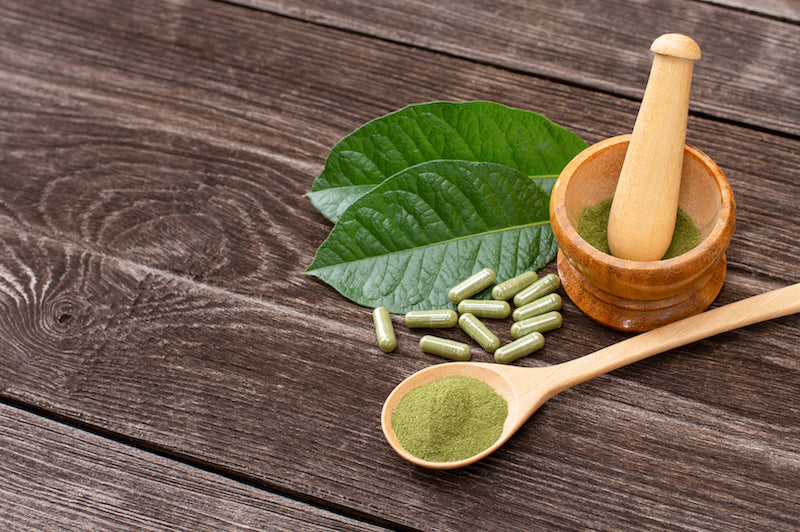
CBD & Lupus - What Early Research Says
Throughout the history of lupus, individuals have continually sought ways to alleviate the pain associated with the condition, whether through natural medicine, doctor-prescribed prescriptions, or lifestyle practices such as strict sleep routines and physical therapy.
After all, lupus is not a condition that simply goes away; it’s a chronic condition characterized by the inflammation of blood cells, skin, and organs, all of which can manifest themselves in painful symptoms like joint pain, fatigue, skin rashes, and fevers.
An increasing number of individuals with lupus are exploring CBD’s inherent anti-inflammatory and pain-combatting properties as a potential tool for mitigating some of these symptoms. What’s more, some early research suggests that CBD could indeed soothe Lupus flare-ups. While the medical community has yet to accumulate enough data to take an official stance about whether CBD can be a tool for alleviating Lupus symptoms, we think it’s worth exploring the effects this plant-based ingredient has on the body.
What the Research Says About CBD’s Effect on Lupus
As we mentioned, research is still in the early stages, but studies like Therapeutic Prospects of Cannabinoids in the Immunomodulation of Prevalent Autoimmune Diseases published in 2021 and Immune Responses Regulated by Cannabidiol in 2022 support the theory that CBD may downregulate inflammatory responses and assist in treating lupus symptoms.
Lupus often includes pain from neuropathy (nerve damage) along with other sources. As a proven pain reliever, CBD works with the endocannabinoid system to alter pain signals from the brain to the body and decrease inflammation. While 95% of lupus patients deal with chronic joint and arthritis pain, CBD can offer some relief.
An often overlooked issue with lupus patients is the emotional and mental effects that coincide with this disease. Whether this is due to the disease itself or the correlation between coping with painful and debilitating symptoms, adding CBD to your daily routine can help with feelings of anxiety and depression by interacting with your central nervous system to maintain balance.
How CBD Interacts with the Body on Whole
How does CBD combat inflammation?
One word you’ll see sprinkled throughout this piece in connection to Lupus is inflammation. With this in mind, it’s worth highlighting that CBD is a well-established anti-inflammatory.
CBD interacts with the human body through the endocannabinoid system, which regulates bodily functions including sleep, pain, mental state, immunity, and appetite. The endocannabinoid system contains cannabinoid receptors in the central nervous system (brain and spinal cord nerves), along with the peripheral nervous system which includes your extremities, digestive, and immune systems.
CBD contains a variety of therapeutic effects due to its antioxidant and anti-inflammatory properties which interact with the endocannabinoid system to naturally try and get your body out of inflammatory, fight or flight mode and back to homeostasis.
What exactly does this mean for lupus? In simple terms, CBD can lower inflammation, and decrease pain, nausea, and other negative symptoms associated with it. Studies have found that CBD oil can reduce severe chronic inflammation by decreasing the activation of pro-inflammatory white blood cells.

How to Limit the Risks of Taking CBD for Lupus
Always consult with a doctor
Although taking CBD generally results in little to no negative side effects, it is important to note that certain medications such as blood thinners, immunosuppressant medications, and sedatives may not be safe to mix with CBD. If you have lupus, it is important to always consult with your doctor before beginning the use of CBD.
Choose a brand that backs its products with third-party testing
Not only do you want to make sure you get what you pay for when buying CBD, but that the quality of products is also safe and effective. Third-party testing and certification by an independent organization assure that quality control processes were used and specific standards were met when your CBD products were made.
This is a top priority to be sure the product contains high-quality CBD and leaves out toxic chemicals, pesticides, and other contaminants. Be sure to choose products from a reputable company.
Start with lower a dosage and gradually increase
In addition to the medication or supplement regimen used to treat lupus, there are additional variables that go into deciding how much CBD to take. Your body weight, metabolism, and the type of CBD all factor into what dosage you should take. When dealing with the interaction of CBD and lupus, it is a good idea to start with a very low dose of CBD and slowly work your way up.
Remember to speak with your doctor before starting CBD, especially if you are taking blood pressure or seizure medication.
Begin Your CBD Journey With Botanika Life
Integrating anti-inflammatory natural supplements can help reduce the systemic cycle of chronic inflammation when suffering from lupus. Botanika Life offers several options to treat whole-body inflammation, as well as specific pain sources. The Elite Elixir is the trifecta of CBD care with 1500mg of powerful full-spectrum CBD, you can ingest the Elite Elixir for total body inflammation reduction and anxiety relief. Use it topically to reduce wrinkles and eczema, and for pain relief.
Additional relief comes to your rescue with the Pain Relief Kit & Cryo Massage Roller providing a comprehensive pain relief system. With the powerful ingredients of CBD, lidocaine, and menthol, this soothing blend along with the cool cryo massage roller offers an alternative to medication for pain relief.

By Emily Wegener
With a unique background as an Integrative Nutrition Health Coach, Masters Degree in Teaching and experience in Psychology, Emily spends much of her time researching and trying out new holistic healing modalities.


